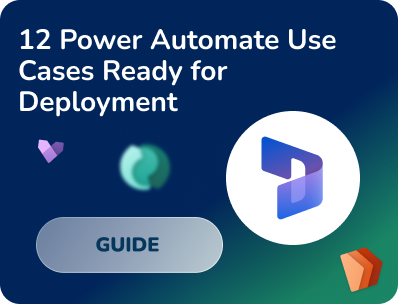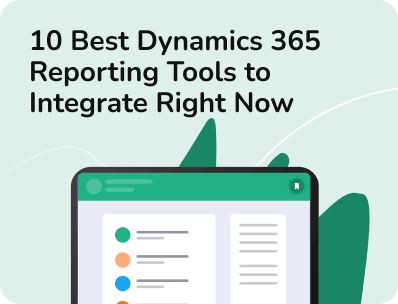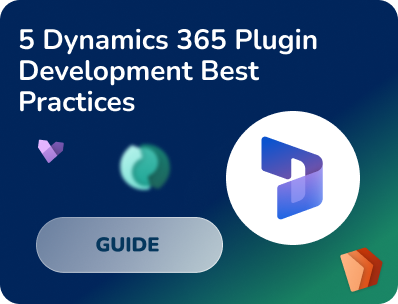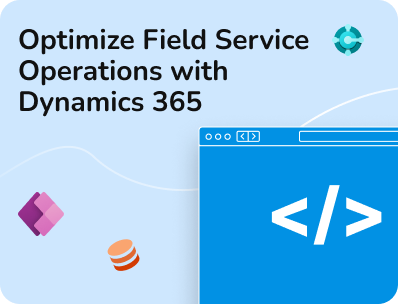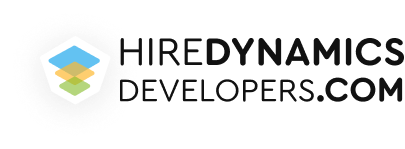- Services
- ConsultantsMODULESLegacy Support
- Industries
- Locations
WESTERN & NORTHERN EUROPE
EASTERN & CENTRAL EUROPE
- Our Company
 About Us
About UsLearn more about our HireDynamicsDevelopers portal and the team behind it.
Case StudiesRead successful stories from our clients across various industries.
ServicesFind the right service according to your specific business needs.

- Services
- ConsultantsMODULESLegacy Support
- Industries
- Locations
WESTERN & NORTHERN EUROPE
EASTERN & CENTRAL EUROPE
- Our Company
 About Us
About UsLearn more about our HireDynamicsDevelopers portal and the team behind it.
Case StudiesRead successful stories from our clients across various industries.
ServicesFind the right service according to your specific business needs.

Dynamics 365 Business Central vs Finance and Operations
Updated: October 14th, 2025 by Ivan Farafonov
When choosing core business management software, companies often hesitate between two powerful modules: Business Central vs Finance and Operations. The fact is that both solutions cover all aspects of running a company, from customer and employee relations to budgeting and warehouse control. They provide a comprehensive approach to company governance, which is why they are a common choice for many teams.
So, how do you decide which solution is right for you? Let’s compare Dynamics 365 Finance vs Business Central to determine which system is the most relevant.
Key Details about Dynamics Business Central
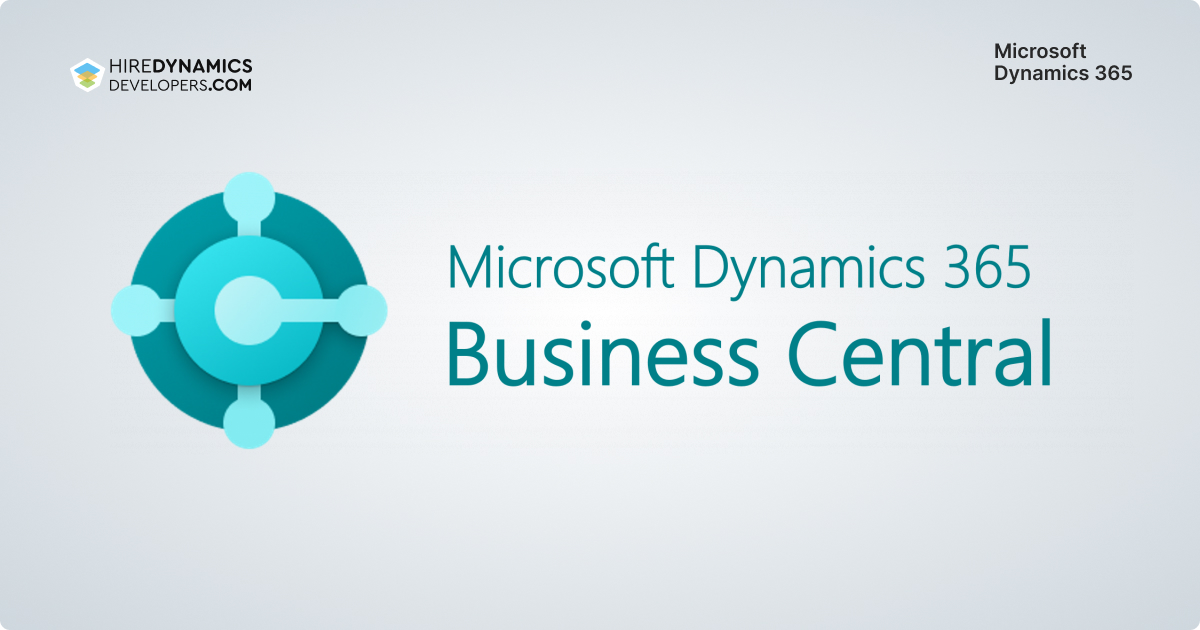
Overview and Features
Let’s start with the fact that Microsoft Dynamics 365 Business Central is a one-stop Dynamics ERP to manage small and medium-sized businesses. It integrates various types of your operations into a single platform that allows you to manage finances, sales, and customers from one place. So, you don’t need to connect multiple modules or applications: everything is in one convenient working environment. It is worth noting that Dynamics BC is built on a cloud-based infrastructure. It means it is ready to grow with your company without major interventions in the architecture.
Financial Management
The next aspect many customers are concerned about is financial tools, and Dynamics 365 Business Central definitely has something to offer. Armed with money management functionality, you can handle general ledger, accounts payable, accounts receivable, investments, and revenue. The platform also supports multi-currency transactions and updates financial information immediately without delay.
The system also allows you to deal with supply chains. It includes tracking inventory levels, order management, and full control over procurement processes. As a result, you get complete financial statements and see where you can save money and where you should invest more.
Sales and Customer Service
Business Central doesn’t leave out optimizing your customer relationships and allows you to create fully customized offers. Thus, you can track the activity and behavior of potential customers, identify your target audience, and create effective marketing campaigns. Plus, with the integration of the Customer Service module, you can manage service contracts and customer requests, which ultimately increases the overall level of customer satisfaction. This approach allows you to engage clients, gain their trust, and maintain long-lasting relationships.
Project Management and Human Resources
It is worth noting that even though the BC module is focused on small and medium-sized businesses, it allows you to manage multiple projects simultaneously. The platform helps to create budgets, track project costs, and assign resources. Accurate auditing and scheduling allow you to complete tasks on time and control the quality of service on each contract.
In addition, Business Central includes basic HR functions to manage employee accounts, monitor working hours, and track attendance. Thus, you can create tasks, control their execution, and be aware of the entire workflow within the team.
Customization and Extensibility
A significant advantage of Dynamics 365 Business Central is its customizability. You can adapt the platform to your unique needs by developing your applications and extensions on Microsoft’s AppSource platform. It makes it fully compatible with a variety of industries. If you need to customize many features and create unique tools, consider our Business Central consultancy services.
Understanding Dynamics Finance and Operations
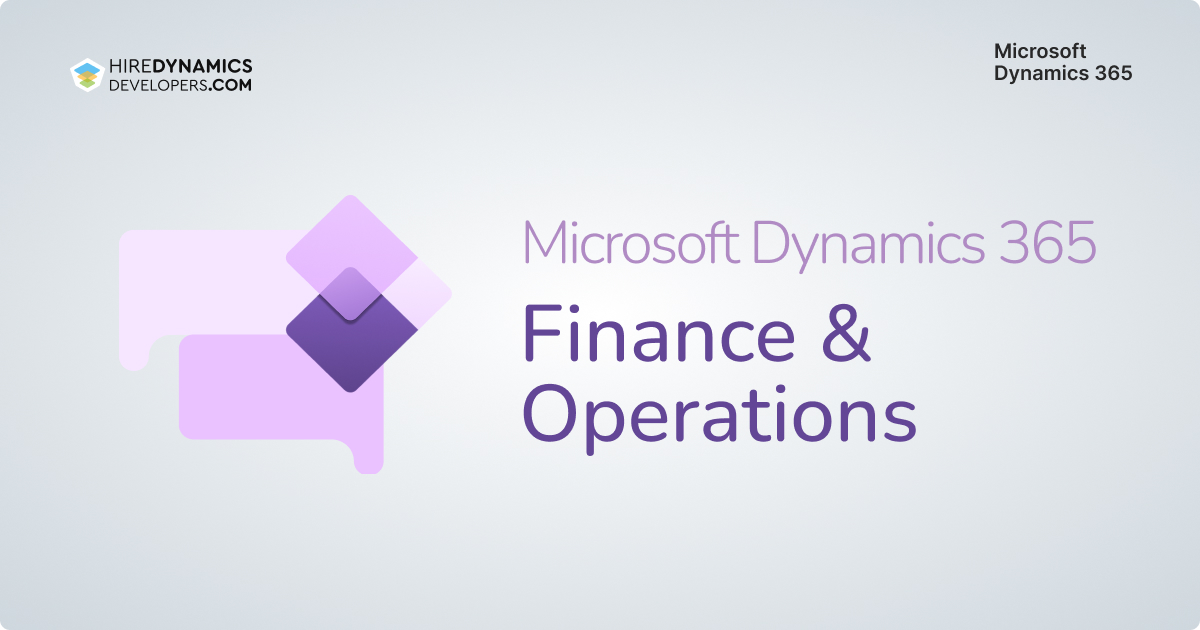
Overview and Features
The next system we will consider is Microsoft Dynamics 365 Finance and Operations. It is also a cloud-based solution for resource planning and any enterprise operations. However, the main difference is that Dynamics F&O covers a much larger volume of work, so it is designed for medium and large companies.
The module integrates financial, supply chain, project, and production process management into a single ecosystem. It allows you to greatly optimize your workflow in all aspects, simplify routine tasks, and handle large amounts of information without manual input and processing. As a result, you focus more on growing your business and can direct your efforts to customer relationships or product quality rather than monitoring day-to-day operations. Plus, with professional Dynamics 365 Finance and Operations developer, you can configure the software exactly to your needs and get custom tools.
Financial Management
The system is a powerful assistant in financial management. Thus, you get reliable budgeting, forecasting, and financial reporting tools. Moreover, you can automate key operations, including accounts payable and receivable management, general ledger, and fixed asset tracking. This approach allows you to control all your financial resources and understand the picture of expenses and revenues without integrating additional tools. As a result, you keep accurate records and direct funds where they are needed.
Supply Chain Management
Another difference between Dynamics 365 Finance and Operations and Business Central is the set of supply chain tools. The fact is that the Finance module allows you to cover much larger volumes of goods and control their life cycles, starting from procurement and ending with inventory management. Thus, you can control inventory levels, manage suppliers, and optimize replenishment processes. Advanced demand forecasting and planning tools will help you meet customer demand, minimizing excess inventory. This way, you completely get rid of manual counting, because the system keeps track of all products. The software also sends notifications about shortages or can even make purchase requests automatically.
Manufacturing Support
A distinctive feature of Finance and Operations is that the system supports various manufacturing processes, including discrete, lean, and process manufacturing. Thus, you will easily plan production schedules, track work orders, and manage your workforce quickly and efficiently. This approach allows you to increase the efficiency of your entire team, improve product quality, and even reduce costs. This makes the system a relevant solution for manufacturing organizations that need detailed control and full management over production processes.
Project Management and Human Resources
The platform also provides powerful project management tools that help to plan, execute, and monitor projects effectively. Armed with modern functionality, you can quickly define budgets, allocate resources, and track time and costs. It works even on large-scale projects or when you have a lot of contracts. The system supports large volumes of work, so you can easily handle it and get reliable reporting on each task.
In addition, the module offers extensive HR functions, including employee onboarding, performance management, and payroll processing. This way, you increase employee engagement, simplify administrative tasks, and ensure full efficiency and team cohesion.
Integration and Analytics
Built-in analytics and reporting tools offer users real-time insights into their business performance. With customizable dashboards and reports, you can track key performance indicators (KPIs), analyze trends, and make data-driven decisions. Integration with Power BI further enhances the analytics capabilities of the platform, providing advanced business intelligence tools.
Let’s choose Business Central vs Dynamics 365 for Finance and Operations with our experts!
Difference Between Dynamics Business Central and Finance and Operations
Now, let’s explore the difference between Microsoft Dynamics Business Central vs Finance and Operations through a comparison table. It will help clarify the distinctions in functionality and target audiences for each platform.
Feature Name | Dynamics 365 Business Central | Dynamics 365 Finance and Operations |
|---|---|---|
Target Audience | Small to Medium-Sized Firms | Medium to Large Corporations |
Financial Management | Basic accounting and invoicing | Advanced financial management and tracking with multi-company consolidation |
Supply Chain Management | Basic inventory and order management | Extended supply chain and procurement capabilities. Full SCM process. |
Manufacturing Support | Limited manufacturing features(Premium version only) | Comprehensive manufacturing processes (discrete, process, lean) |
Project Management | Simple project tracking | Detailed project planning and resource management with different stages and subprojects. |
Human Resources | Basic HR functionalities(Premium version only) | Extensive HR management, including talent management and payroll |
Customization | Limited customization options | Highly customizable to cope with specific industry needs |
Implementation Complexity | Easier and quicker implementation | More complex with longer implementation times |
Integration | Integrates mostly with Microsoft 365 | Integrates with other Dynamics 365 apps and offers advanced reporting |
Pricing | Lower total cost of ownership | Higher pricing, suited for larger budgets |
Business Intelligence | Basic analytics and reporting | Advanced analytics with Power BI integration |
User Interface | User-friendly and intuitive | More complex but powerful interface |
Some of Our Dynamics Experts
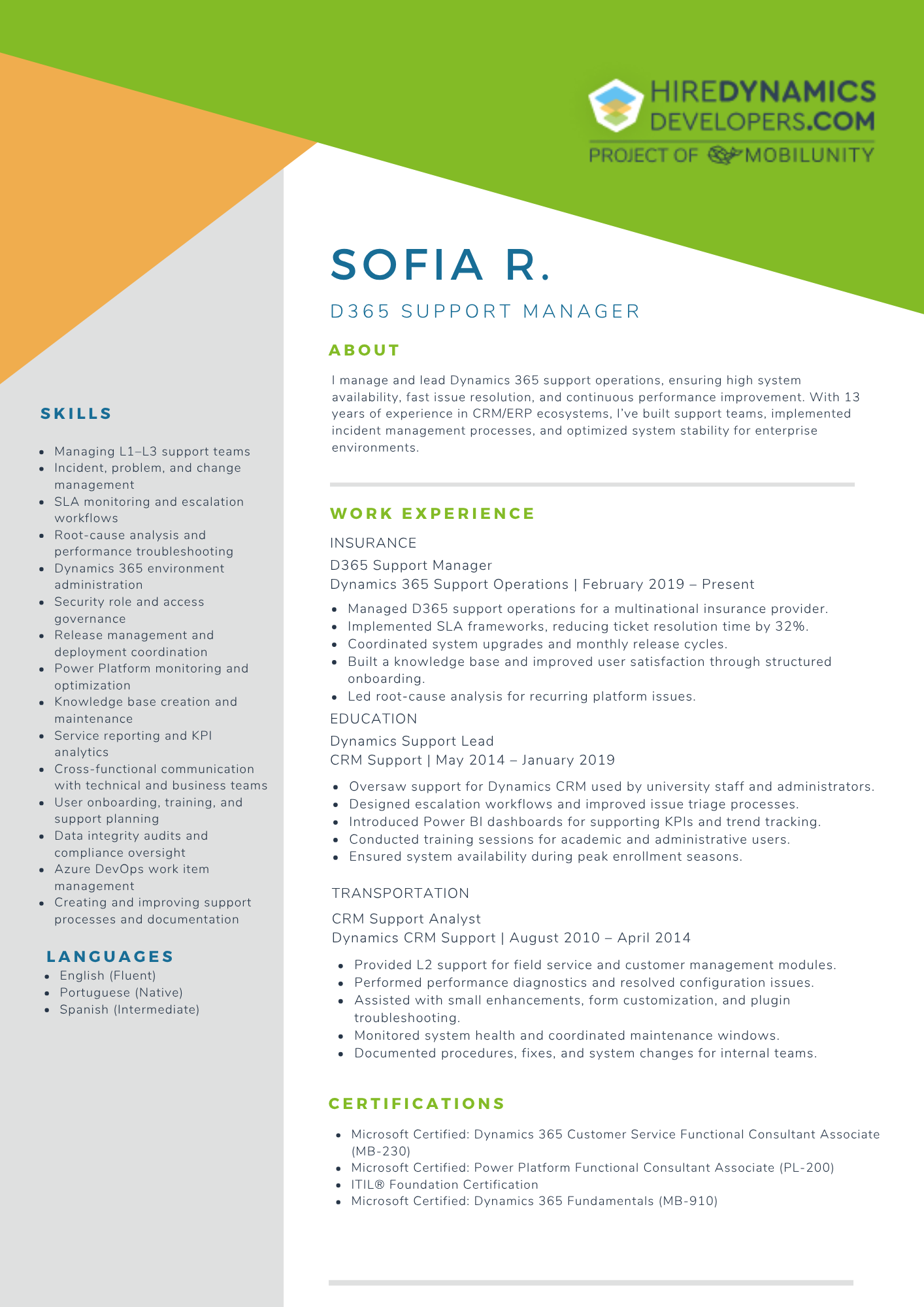
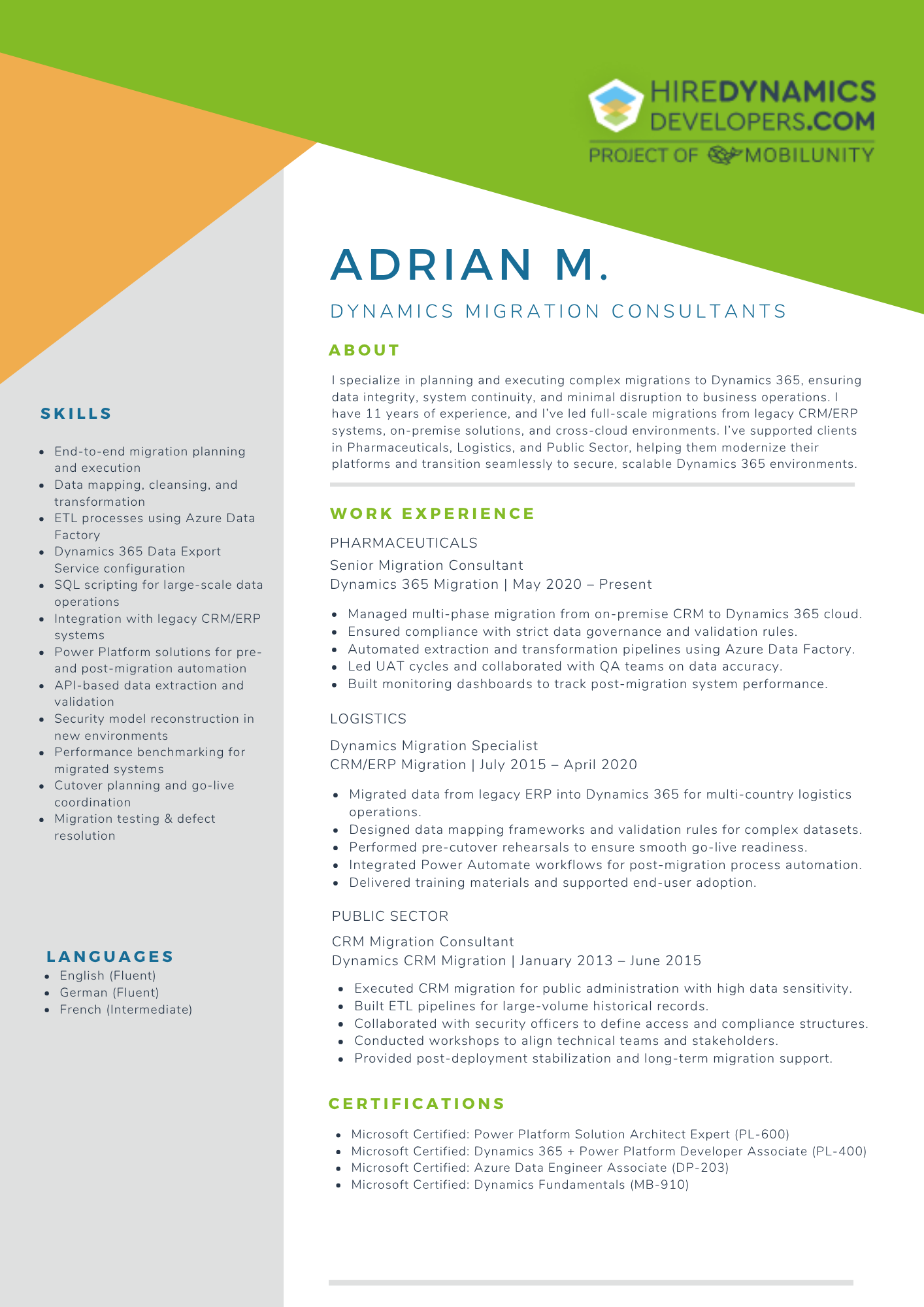
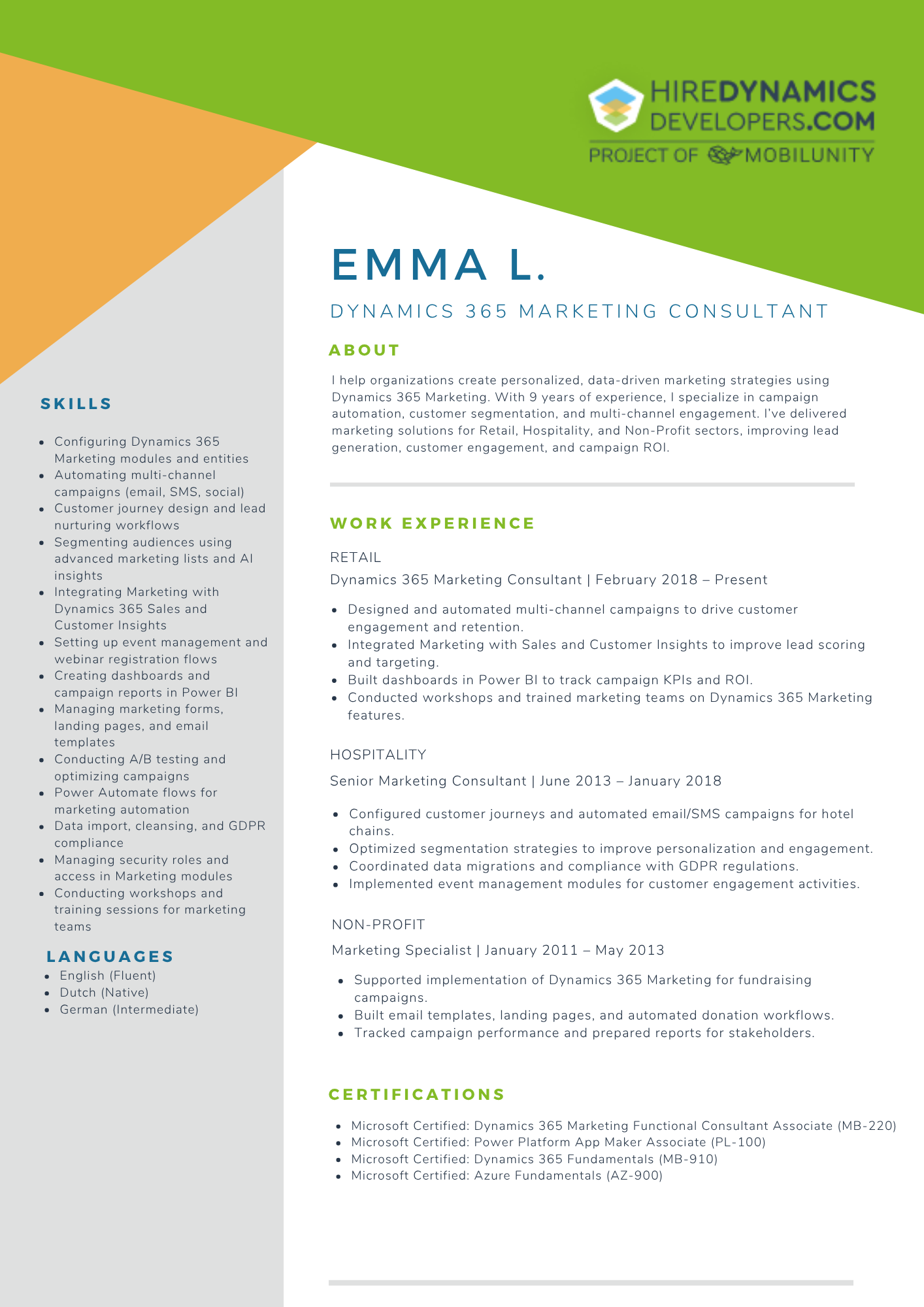
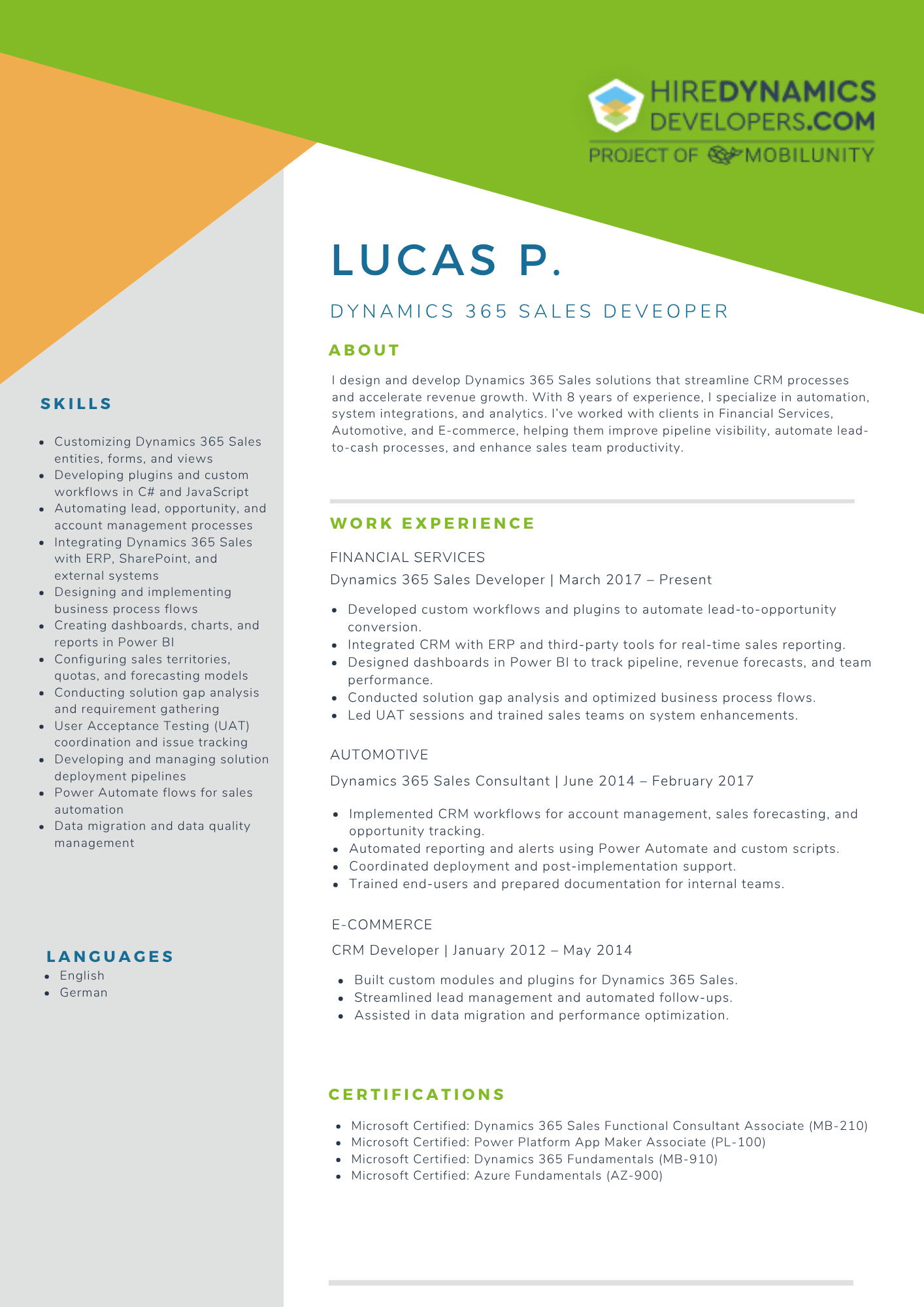
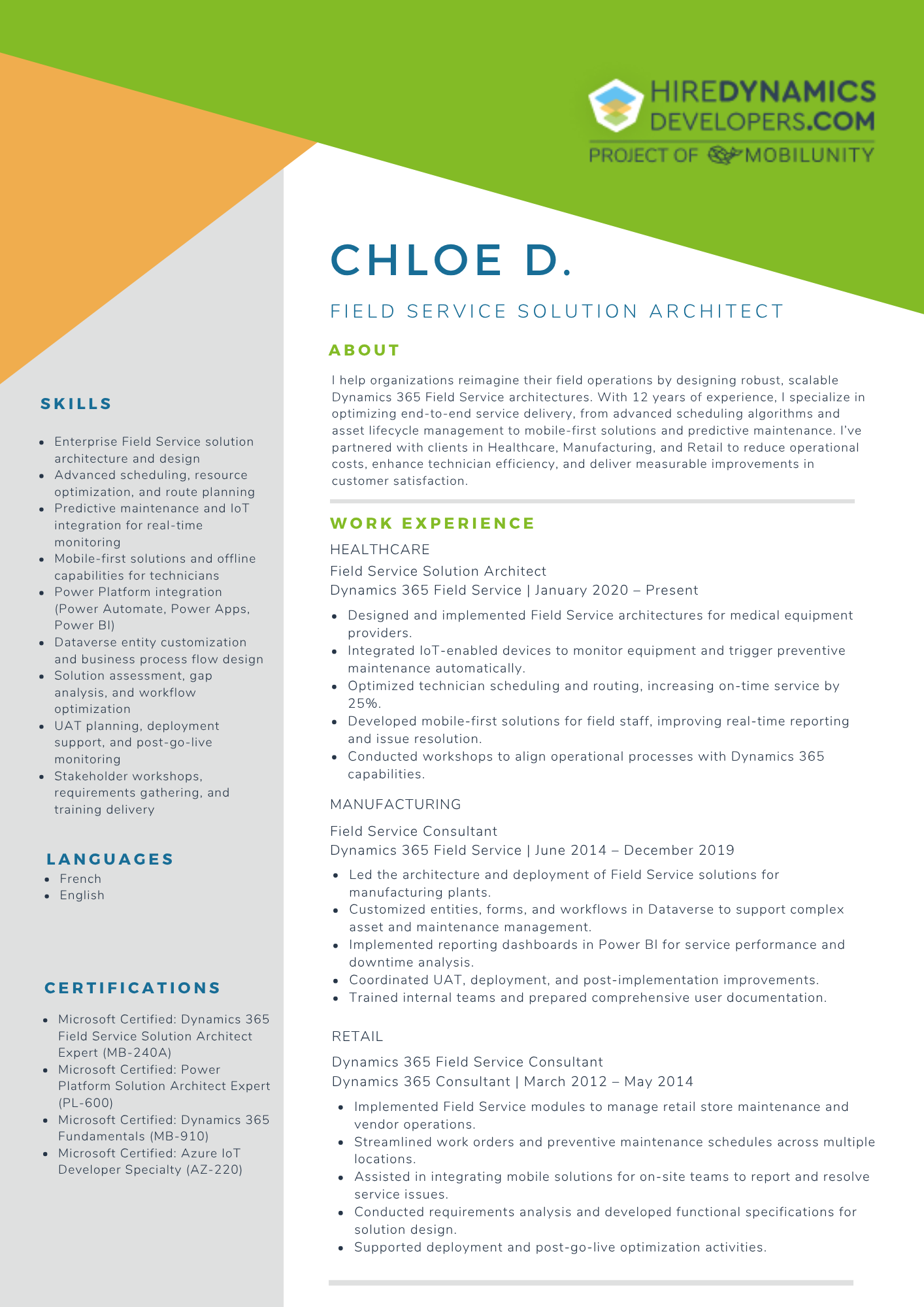
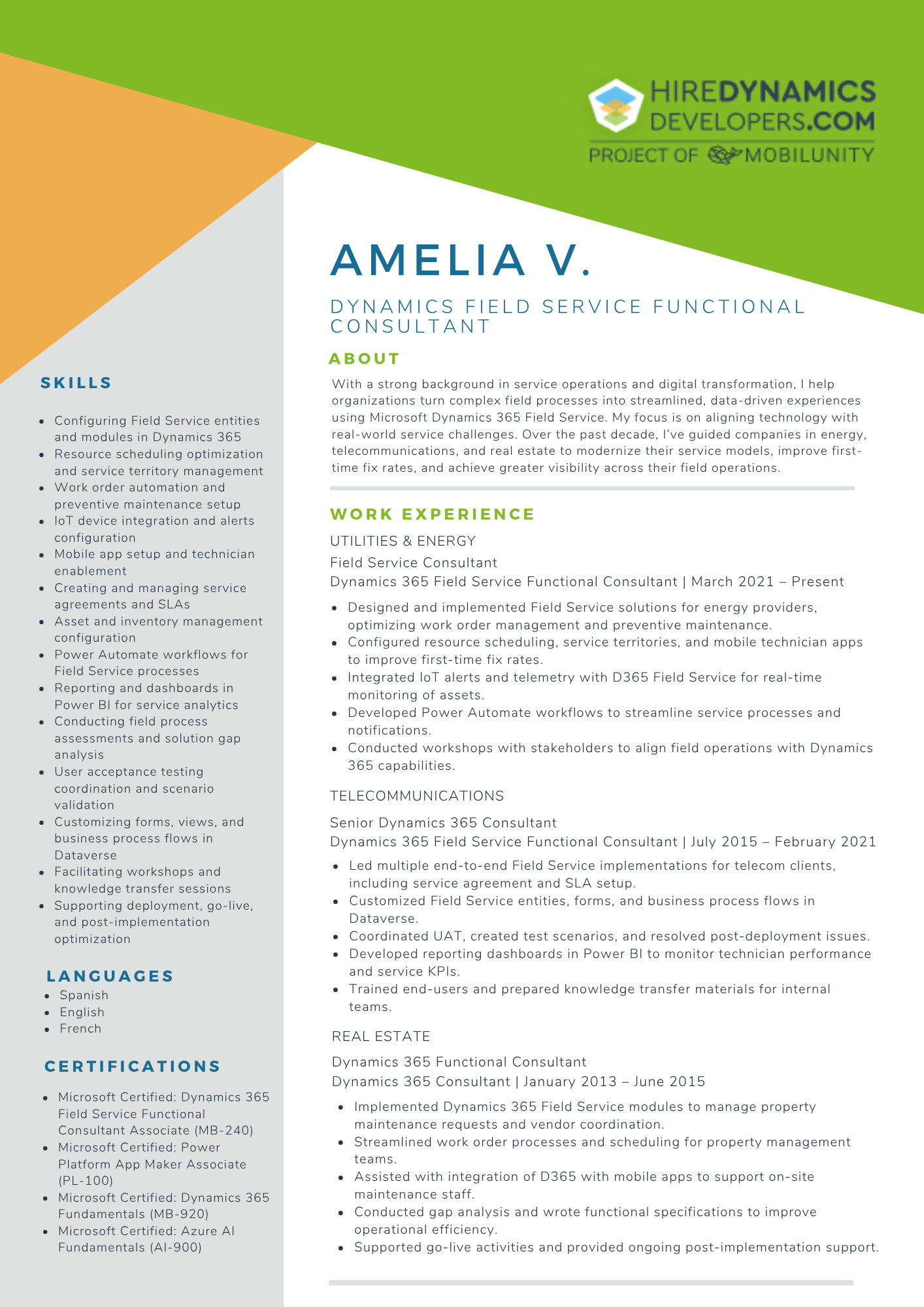
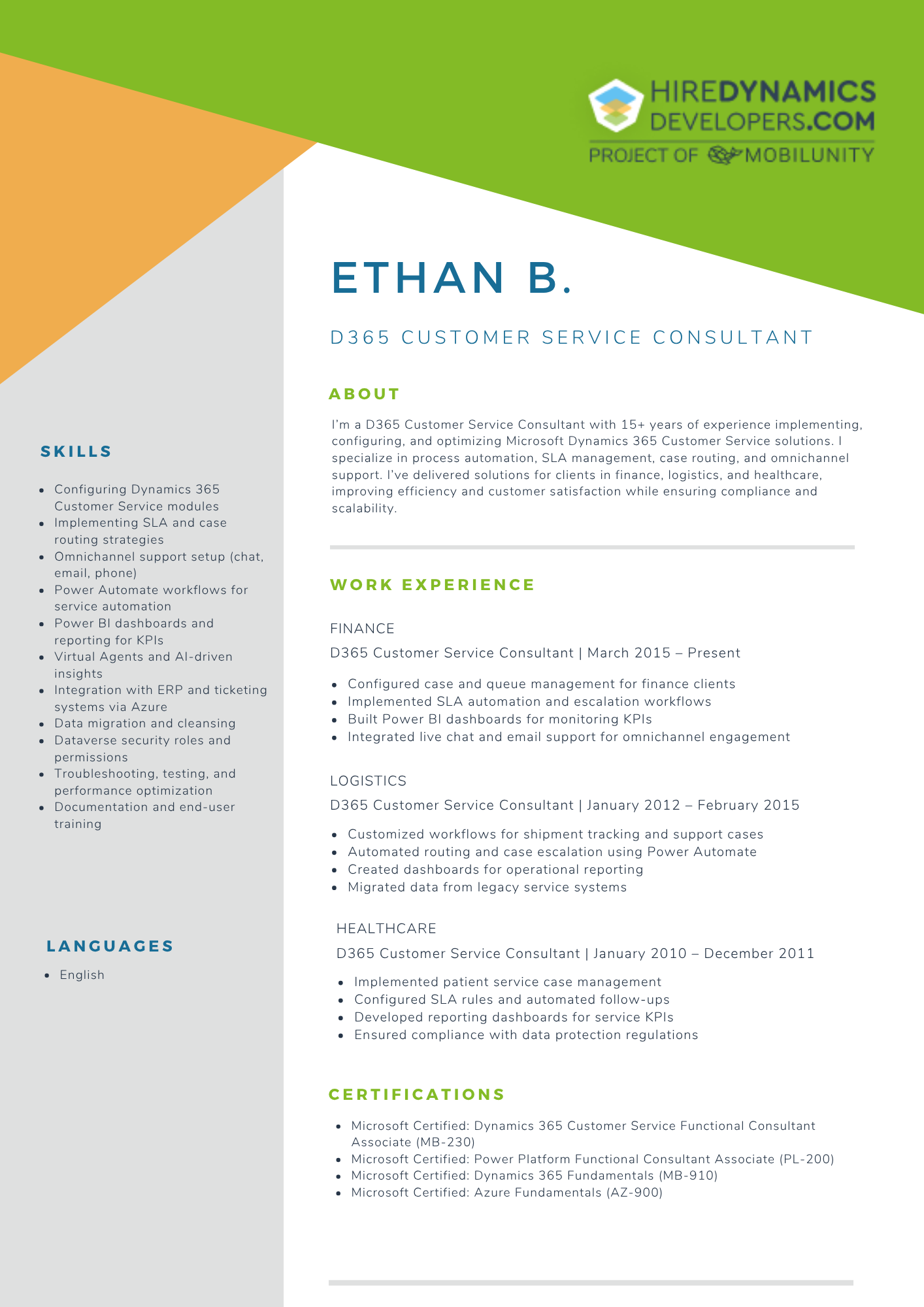
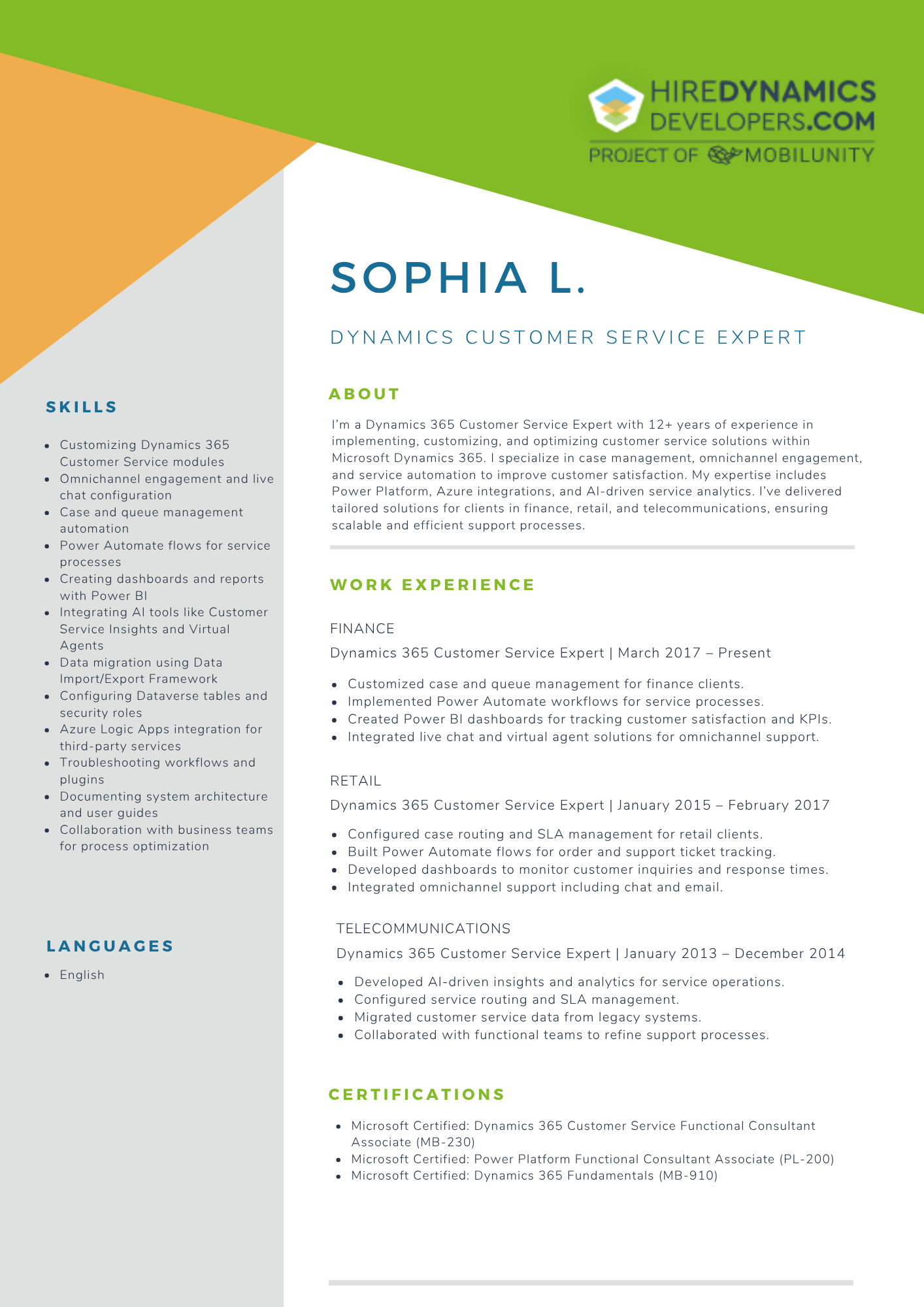
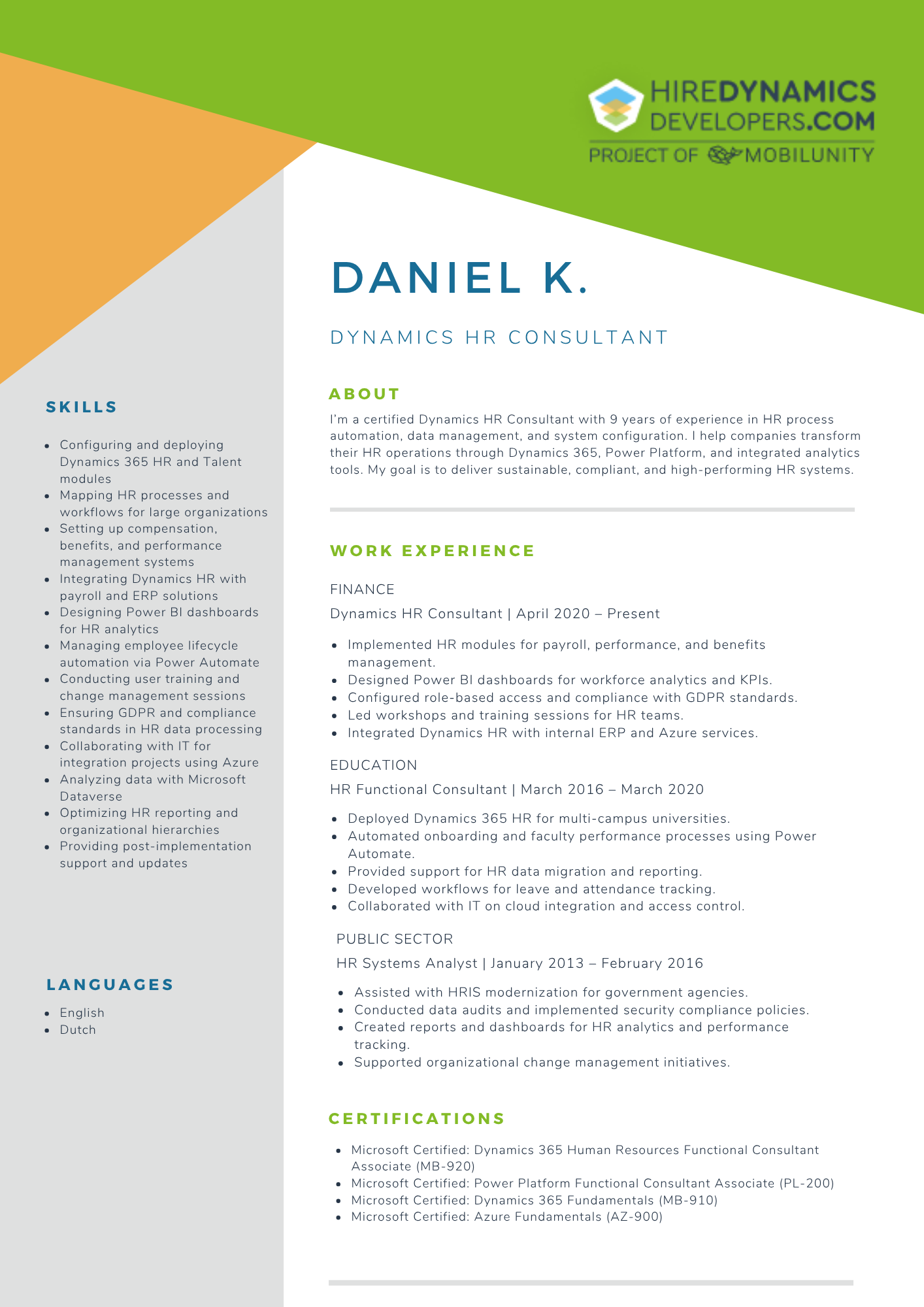
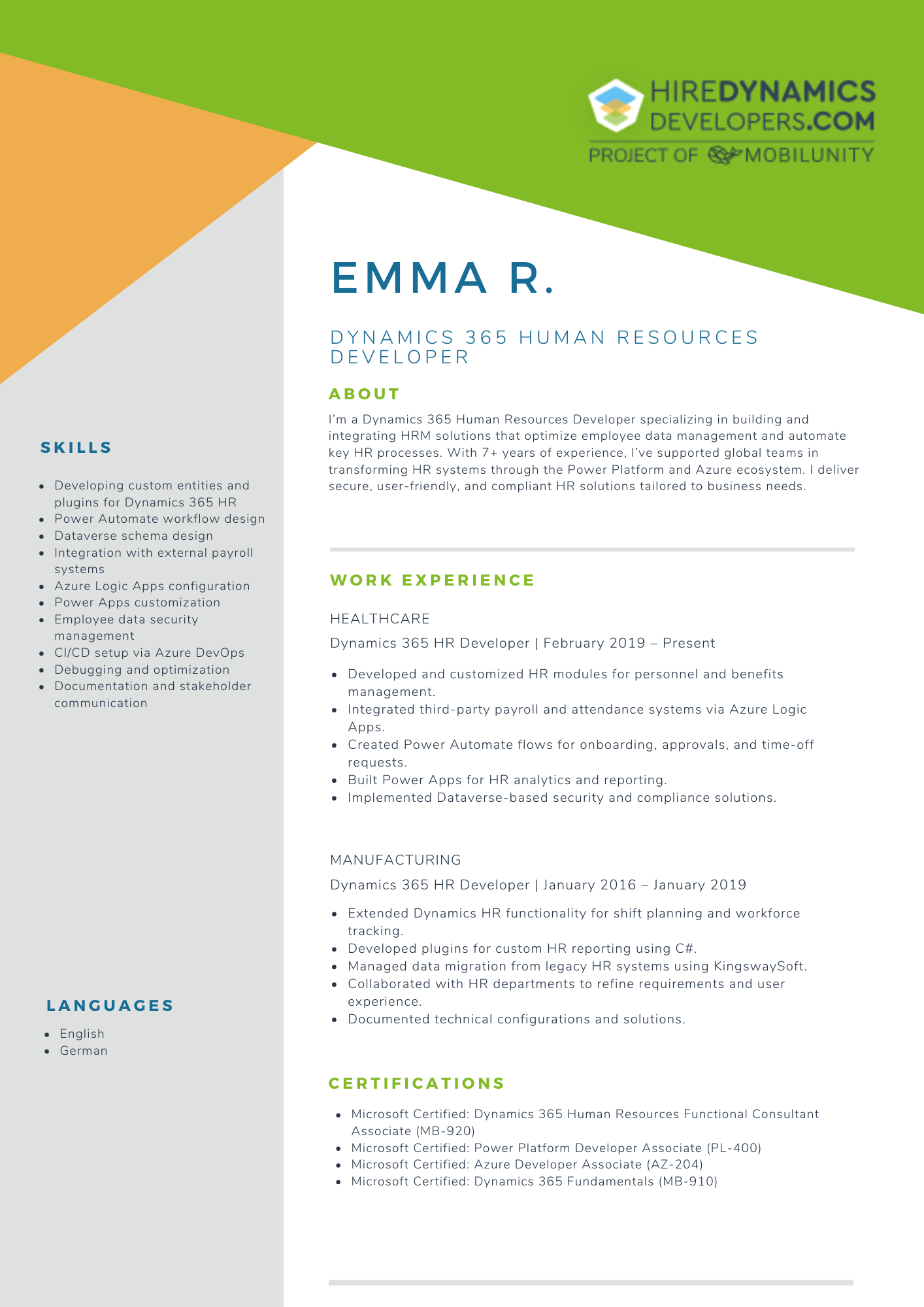

Difference Explaining in Detail
Now let’s go through all the points in the table to dive deeper into the differences between Business Central vs Finance and Operations dynamics. This way, you’ll be able to choose the right system for your needs and move forward with a powerful toolkit.
Core Features
Business Central
- Basic accounting, invoicing, budgeting, and financial reporting features.
- Basic inventory management and order processing tools.
- Integrated CRM functionalities for managing sales and customer relationships.
- Simple project tracking and resource management.
- Basic HR functionalities, such as employee records and time tracking.
Finance and Operations
- Advanced features to deal with complex budgeting, financial operations, accounting, and advanced analytics.
- Covers demand planning, procurement, and inventory management.
- Tools for various manufacturing processes (discrete, process, and lean).
- Detailed project tracking & profitability analysis.
- Extensive HR functionalities.
Complexity and Customization
Business Central
- Simple and easy to implement.
- Offers customization options but is less extensive compared to Finance and Operations. Suitable for businesses that do not require heavy modifications.
Finance and Operations
- More complex and may require a long implementation time due to the extensive features.
- Highly customizable to meet the specific needs of different industries.
Integration and Ecosystem
Business Central
- Integrates with Microsoft 365 basic applications (like Outlook and Excel) and offers access to a wide range of third-party applications through AppSource.
- Part of the Microsoft ecosystem.
Finance and Operations
- Integrates with other Dynamics 365 applications (like Sales and Customer Service) and offers advanced reporting with Power BI.
- Also part of the Microsoft ecosystem, but designed for a more extensive integration.
Pricing
Business Central
Has a lower total cost of ownership compared to Finance and Operations, so it is more affordable.
Finance and Operations
Has higher pricing, so it is suitable for larger budgets associated with medium to large enterprises.
General recommendations
Small to Medium Companies | Medium to Large Companies |
|---|---|
Dynamics 365 Business Central is the best option. It offers a user-friendly interface, comprehensive functionalities, and is cost-effective for organizations that need a solid foundation for managing their business processes without extensive customization. | Dynamics 365 Finance and Operations is more relevant. Its advanced features in financial management, supply chain logistics, and manufacturing make it ideal for companies with complex requests. |
Conclusion
Finally, when choosing between Microsoft Dynamics 365 Business Central vs Finance and Operations, the key thing to consider is the size of your company and the amount of material you deal with. Business Central is a convenient option for small and medium-sized companies, as it offers a seamless, integrated experience for all processes. In contrast, Finance and Operations is designed for larger organizations. It offers advanced features and customization options to meet complex requirements.
It’s worth noting that both systems offer all the features you need to manage your team’s workflows. However, Finance & Operations supports larger volumes of information, while BC is the perfect solution if your company operates as a small or medium-sized business.
Consider these points when choosing between Microsoft Dynamics 365 Finance & Operations vs Business Central to make the right choice for your growth. If you need advice on this matter, don’t hesitate to contact us for reliable assistance.
Let's compare Business Central vs Finance and Operations with our experts! Get in touch with us for a reliable consultation!
Outline
Adrian M.
40 Hours / Week
Nino A.
40 Hours / Week
Bartek W.
20 Hours / Week
Request Our Services
Discover the Full Comparasion of Dynamics 365 Business Central vs Finance and Operations!
Your Partner Recognized in Dynamics Community








